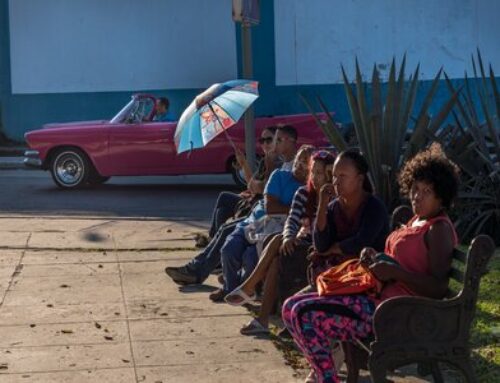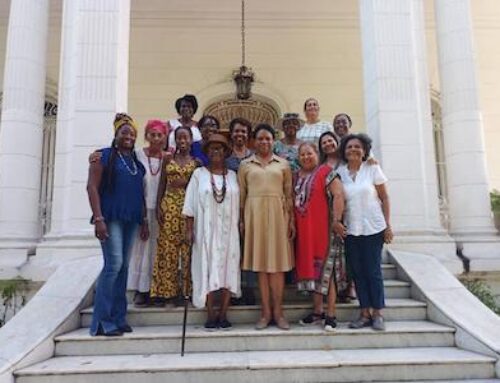The following is a guest post written by Tori Hogan–an author, filmmaker, and educator with an endless curiosity about the world and a heart for exploration.
The Transformational Power of Travel: Local Insights in Cuba
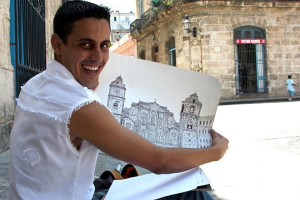 Travel transforms us. I’ve known this to be true ever since my first trip to Mexico as a small child, and eighty-one countries and seven continents later, it’s still true.
Travel transforms us. I’ve known this to be true ever since my first trip to Mexico as a small child, and eighty-one countries and seven continents later, it’s still true.
Each new place challenges me in a different way, opens my eyes, and changes my perspective about myself and the world. Sometimes the changes are small, like gaining a new appreciation for Buddhist culture in Northern Laos, or learning a new dance move in Brazil — and sometimes they’re life-altering, like when I found myself embracing a total career change after a stint in Kenya and Somalia. And while there’s no exact formula for how a journey might change a person, my own travels have shown that the level of personal transformation I experience is usually directly correlated to the amount of meaningful interaction I have with local people. While beautiful vistas are great, it’s usually the act of sharing meals, striking up conversations, and immersing myself in the daily realities of local life that changes me the most.
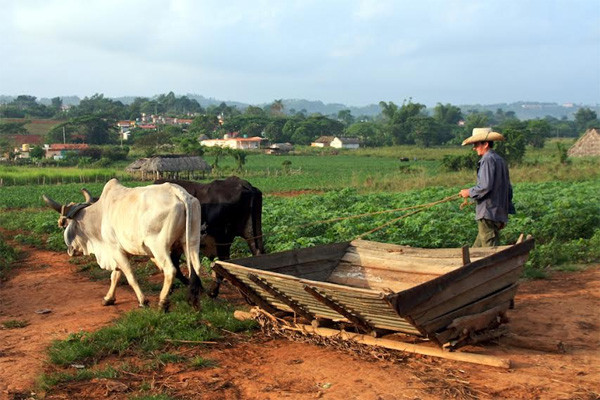 Not surprisingly, my recent trip to Cuba was filled with a wide range of transformational encounters with locals. Though I traveled to the island with the task of researching how American People-to-People tours affect Cuba, it didn’t take long to see that the impact clearly goes both ways. Sure, American visitors undoubtedly bring economic opportunities to small-scale Cuban entrepreneurs, they support a wide variety of cultural organizations during their visits, and provide Cubans with a more realistic and positive impression of Americans than Cuban media might portray. However, what American visitors walk away with is equally, if not more, profound.
Not surprisingly, my recent trip to Cuba was filled with a wide range of transformational encounters with locals. Though I traveled to the island with the task of researching how American People-to-People tours affect Cuba, it didn’t take long to see that the impact clearly goes both ways. Sure, American visitors undoubtedly bring economic opportunities to small-scale Cuban entrepreneurs, they support a wide variety of cultural organizations during their visits, and provide Cubans with a more realistic and positive impression of Americans than Cuban media might portray. However, what American visitors walk away with is equally, if not more, profound.
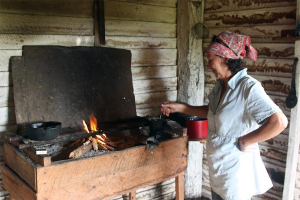 During my time in Cuba I had countless conversations that altered my preconceived notions about the country and its people. Whether it was an interview with the director of a local organization or a casual chat with an 84-year-old tobacco farmer, every interaction presented a new perspective. My time there also reminded me to slow down, take life as it comes, and have more appreciation for the little things. I was inspired to rethink my own commitment to hospitality (the Cubans are extraordinary in this area), and I was challenged to reconsider the notions I’ve attached to the word “communism.” It felt like every person I met brought another piece of the puzzle, leaving me with a much more holistic view of Cuba than I ever expected.
During my time in Cuba I had countless conversations that altered my preconceived notions about the country and its people. Whether it was an interview with the director of a local organization or a casual chat with an 84-year-old tobacco farmer, every interaction presented a new perspective. My time there also reminded me to slow down, take life as it comes, and have more appreciation for the little things. I was inspired to rethink my own commitment to hospitality (the Cubans are extraordinary in this area), and I was challenged to reconsider the notions I’ve attached to the word “communism.” It felt like every person I met brought another piece of the puzzle, leaving me with a much more holistic view of Cuba than I ever expected.
One of the most transformational conversations of my trip occurred on my final morning in Cuba when I had the privilege of interviewing acclaimed photographer, Roberto Salas, in his home on the outskirts of Havana. Roberto knows first-hand the endless ways that travel can transform a person. When he was only sixteen years old as a Cuban-American living in the Bronx, Roberto and his father were approached to do a photo essay for a group of seven guys in Cuba who were against the government at the time. The year was 1955, and it “just so happens that the leader of the group was Castro,” Salas told me matter-of-factly. His subsequent trips to Cuba completely changed his life, and Roberto went on to serve as one of Castro’s personal photographers, shooting some of the most iconic pictures of the Cuban revolution. Salas ended up making Cuba his home, and has been living there ever since.
But what struck me most about our conversation was that even as he spoke about the remarkable adventures he’s had (like serving as a war correspondent during Vietnam and photographing Ho Chi Minh himself), what he discovered through all of his travels was the importance of home. “No matter where you go, there’s always some place that you need to go back to in order to breath better,” he said. For Roberto, that place is Cuba. No matter where his more than seventy photographic expeditions around the world have taken him, he admits to always feeling the pull to be back home. I knew exactly what he was talking about.
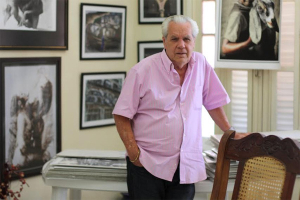 Roberto also wants to encourage others to come visit his beloved country. “Americans have a lot of disinformation and lack of information about Cuba—which are two different things,” he attested. “I’ve had people come here and ask if Castro’s still alive. It’s the lack of information—they just don’t know.” Roberto regularly welcomes American tour groups to his home where he shares his photography and stories from the revolution with refreshing candor, while also answering their questions about modern day Cuba. He said that what surprises visitors most is the way he was able to capture images of everyday life during the revolution. “They see these pictures of Castro and Che Guevara and they realize these people are humans too.”
Roberto also wants to encourage others to come visit his beloved country. “Americans have a lot of disinformation and lack of information about Cuba—which are two different things,” he attested. “I’ve had people come here and ask if Castro’s still alive. It’s the lack of information—they just don’t know.” Roberto regularly welcomes American tour groups to his home where he shares his photography and stories from the revolution with refreshing candor, while also answering their questions about modern day Cuba. He said that what surprises visitors most is the way he was able to capture images of everyday life during the revolution. “They see these pictures of Castro and Che Guevara and they realize these people are humans too.”
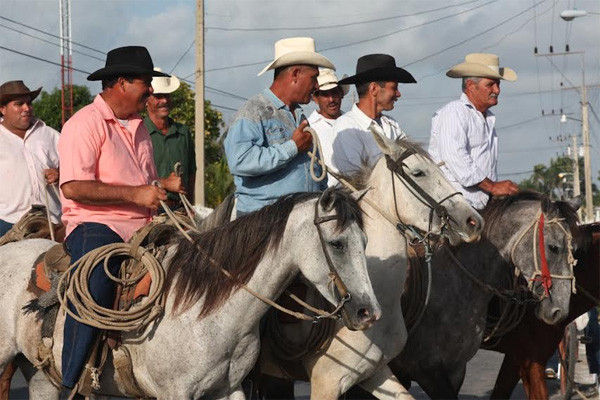 Fifty years ago Salas couldn’t have predicted that he would end up traveling the world as a professional photographer, or that his photos would be in the history books. “You can choose in your life the profession that you want, but where that profession is going to take you, you don’t know,” he explained. However, even as he approaches his 75th birthday, Salas isn’t slowing down. “I never say that I’ve achieved what I can do in life. I always say there’s something new, some reason to keep on going.” He continues to produce compelling photos, including a new series that finds beauty in the crumbling parts of Havana and another that captures portraits of people from all over the country.
Fifty years ago Salas couldn’t have predicted that he would end up traveling the world as a professional photographer, or that his photos would be in the history books. “You can choose in your life the profession that you want, but where that profession is going to take you, you don’t know,” he explained. However, even as he approaches his 75th birthday, Salas isn’t slowing down. “I never say that I’ve achieved what I can do in life. I always say there’s something new, some reason to keep on going.” He continues to produce compelling photos, including a new series that finds beauty in the crumbling parts of Havana and another that captures portraits of people from all over the country.
I left Roberto’s house feeling both inspired and filled with new insights. It’s hard to believe that so many tourists from Europe, Canada, and elsewhere come to Cuba merely to lie on the beach. If the only Cuban’s I’d met were ones wearing resort nametags and handing me mojitos, I would have missed out on so many extraordinary interactions and the opportunity to be transformed by my travels.
Upcoming Journeys to Cuba
Are you interested in learning more about upcoming journeys to *Cuba? Here are some of the Altruvistas tours coming up.
- Culture and Sustainability in Cuba
April 5-11, 2015 - Interactive Art Delegation to Cuba with Jeff Greenwald
April 10-19, 2015 - Nubian Sadhana Cuban Dance & Yoga Immersion
May 1-8 , 2015 - Cuba Sea Turtle Adventure
June 14-21, 2015 - New Year’s In Cuba: Celebrating Culture and Community
Dec 27, 2015 -Jan.4th, 2016
*Altruvistas offers consultation services and in the case of journeys to Cuba, operates in a limited capacity and with only legal and licensed TSPs (Travel Service Providers issued by the US Treasury Department’s OFAC).


